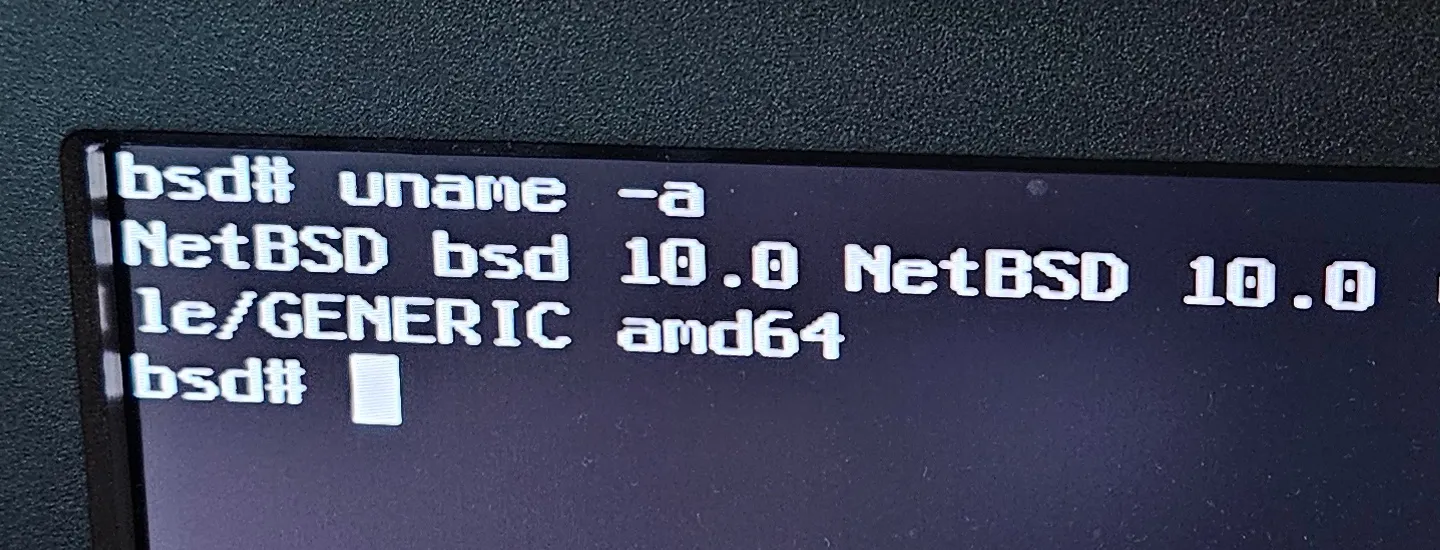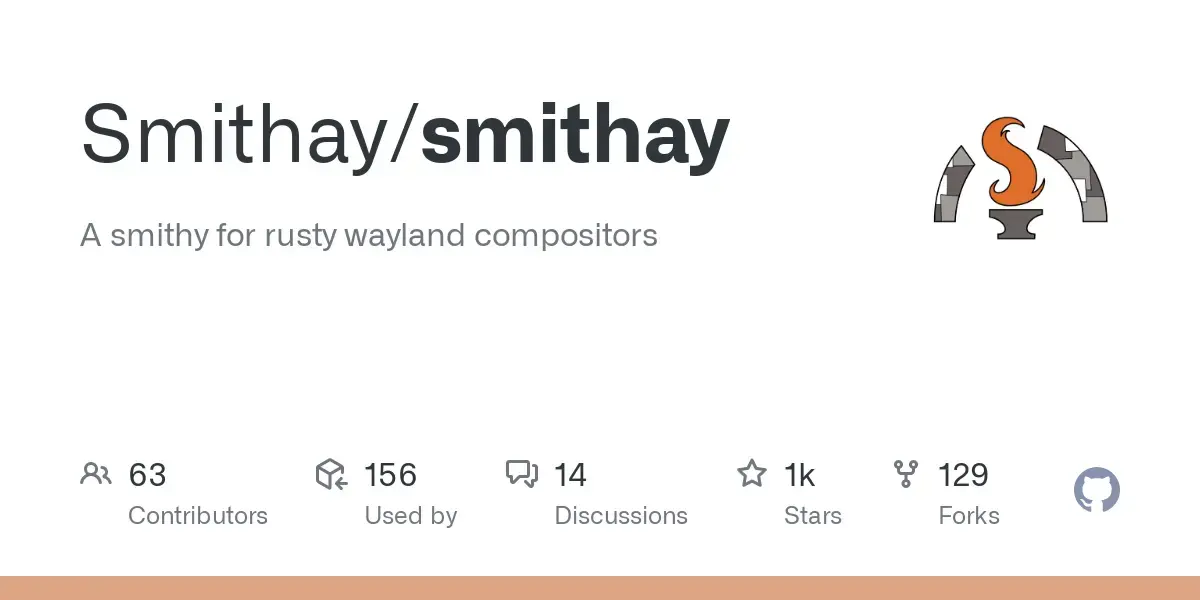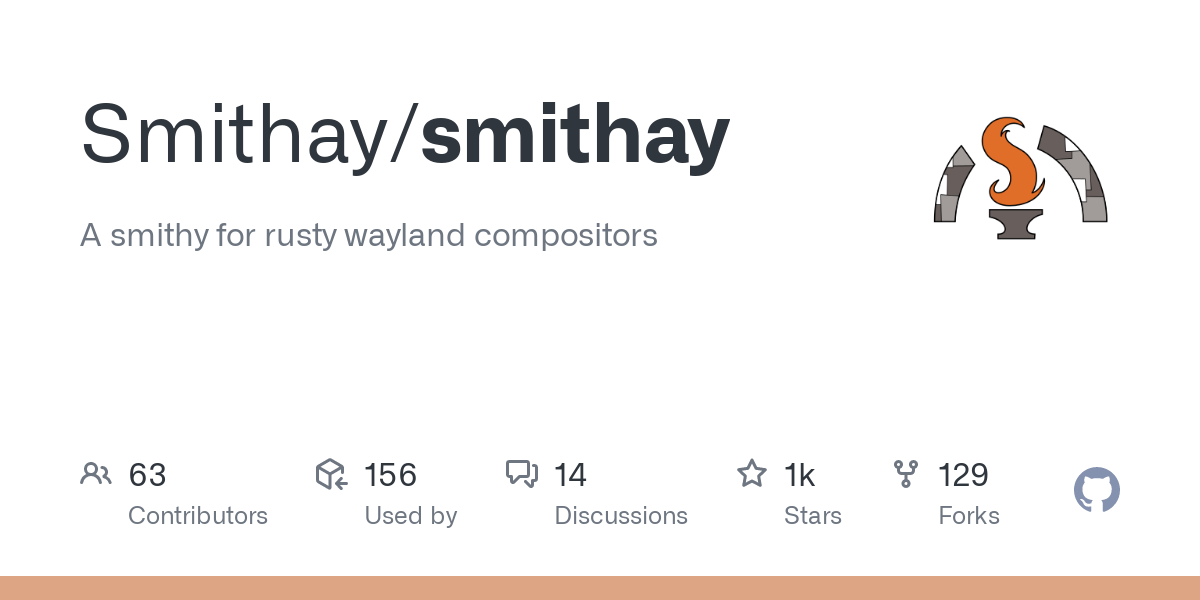- 32 Posts
- 23 Comments

 41·2 months ago
41·2 months agoit’s not that transparent , for example if i am considering funding signal , i can look at the 990 form , see the top salaries, the amount spent on salaries, the number of employees and calculate the average salary. I don’t mind it if the shareholders make a 10-20 percent return but i don’t want to to be a 90 percent return (which basically no public company has, from what i have seen in tech companies it is somewhere around 10-30 percent).

 3·3 months ago
3·3 months agoSo it will have good mainline linux support?

 1·4 months ago
1·4 months agoObligatory mentions of the replication crisis and the Hierarchy of evidence.
Bias against women exists (I remember hearing various “insights” about women IRL from men) but i think something else is going on, reportedly even people who report they are men get “discriminated”, maybe it’s just people who are extroverted show their gender and that slightly correlates with lower quality?
Also i remember reading some woman saying she does not show her gender online to avoid harassment, maybe that also correlates (younger woman not having that insight that not showing your gender could be a net win for the preferences they have)

 1·4 months ago
1·4 months agoTL;DW?

 1·7 months ago
1·7 months agoit’s basically the non profit software in the public interest that is governed by a board elected by open source contributors. From it’s website:
Donations to SPI that are not marked for a particular project will be distributed to the projects that are currently affiliated with SPI as needed, and/or used for SPI’s own expenses.
Maybe there is a place for non profit where donors elect a board of director that decides how to fund things, giving non programmers a way to influence the development of FOSS (and non programmers could have a lot to offer).
There is also tidelift which does something similar.
Non profits might be good candidates, in particular the software in the public interest is governed by a board elected by open source contributors. From it’s website:
Donations to SPI that are not marked for a particular project will be distributed to the projects that are currently affiliated with SPI as needed, and/or used for SPI’s own expenses.
Part of the reason is that people are still finding out about it, Project has no marketing so it grows organically, in the last year the number of contributors grew by 25 percent.
Another problem is that it still needs polish in term of ease of use, for example it takes me forever to search for packages using the nix-env command but using the website it takes less then a second, That’s a basic feature that still does not work correct, Plus their documentation is still not great in my opinion, I actually helped improved it and the improvement they made is still not really good IMO.

 1·8 months ago
1·8 months agoThere is this for wlroots based compositors.

 1·8 months ago
1·8 months agoIf you want to just make money, yeah it’s probably not a really good investment, what i am hoping will happen is that people that really care about creating the type of products purism make will get voting rights and help manage the company better, maybe even create a non profit that will slowly buy the company and manage it (something like how the green day packers was bought by a non profit).
it’s a very hard goal, i am even surprised they made it this far, but just complaining is probably not going to really help make a true Linux phone a reality.
This should not be surprising at this point that a lot of users prefer the wayland session, gamingonlinux survey shows that wayland adoption is consistently increasing (while X11 usage declines).

 1·8 months ago
1·8 months agoI had some issues that happened on debian and not on firefox nix package, maybe debian packaging is not great and this can help improve it.

 3·8 months ago
3·8 months agoI tried a few games that are considered classics and didn’t notice any performance problems, maybe open an issue with a test case?
Link returns “This site can’t be reachedThe webpage at https://files.catbox.moe/8g7agm.mp4 might be temporarily down or it may have moved permanently to a new web address.”.
Do you have a github or codeberg link?
Maybe we should add it to awesome-lemmy?.

 51·9 months ago
51·9 months agoThis means that if someone wants to create a window manager, they have to implement a whole compositor first. So instead of writing window manager code, which is what the developer is probably the most interested in, they are spending most of their time implementing the compositor.
wlroots has existed for almost 7 years and this misconception is still repeated.
Having some hardware mentioned on the site that is supported and ready for use could be helpful if someone wants to try it (say raspberry pi), There are probably people who are worried to will make their computer explode.
On top of what other said, the wayland project also maintains the wayland protocols repository which includes additional protocols that are approved by a “committee” that includes representatives from wayland protocol implementations (wlroots, kde , gnome , smithay etc). for example now they are working on color management.
There appears to be a consensus among people working on window manager implementations that X has to go and wayland is the future.
Wayland has technical benefits, if you want the nitty gritty details see this.
Basically X11 is bad IPC at this point.
Also be careful with what you read online, I see misinformation about it relatively often.
It’s pitched as a open source operation system, yet the snap store is closed source and vendor locked, one of the reasons some of us use Liniux is because we prefer open source (and there are rational justifications for that).
Hate is a strong word, but there is legitimate criticism, I also think the closed source nature of snap led to the fact that it has no volunteers and that eventually caused malware to appear on the snap store multiple time, it never happened on flathub as far as i know.
Today for beginner i think opensuse and linux mint are better.
Regarding debian having old packages , i use nix but it is fairly immature, flathub should also work.

 251·9 months ago
251·9 months agoThat said, Torvalds continued, “Rust has not really shown itself as the next great big thing. But I think during next year, we’ll actually be starting to integrate drivers and some even major subsystems that are starting to use it actively. So it’s one of those things that is going to take years before it’s a big part of the kernel. But it’s certainly shaping up to be one of those.”
I don’t know about that, languages which are based on standards (c++ , javascript, c) seem to have much better enduring popularity, i don’t want to see rust becoming less and less popular which will lead to less available developers (like what is happening with ruby).
open hub defines the development activity as “Very High Activity”.















The score seems very similar to that of the US average life satisfaction score of 6.72. I assume the survey was done in the US.
This seems like a classic case of Confounding . The happier scores seem to be from people that have more money (ios, macos ,pop os) , and people that have technical skills (slackware, gentoo , mobile linux) which are probably more educated and earn more money which iirc according to research correlates with being more happy. Arch users might have higher screen time which might cause lower levels of happiness. slackware might have older users which iirc according to research are happier.
Of course this is not a scientific study , it hasn’t been peer reviewed and this could all be statistical noise.
I think the best way to make linux users happier is have by default in the distro a course on being happier, i can’t find the link but iirc the course on coursera increased the score by 1 point (so probably somewhere around from 6.7/10 to 7.7/10), I spent a while learning about this stuff and experienced a similar jump (Although i don’t know if i will keep it if there will be some strong negative event).